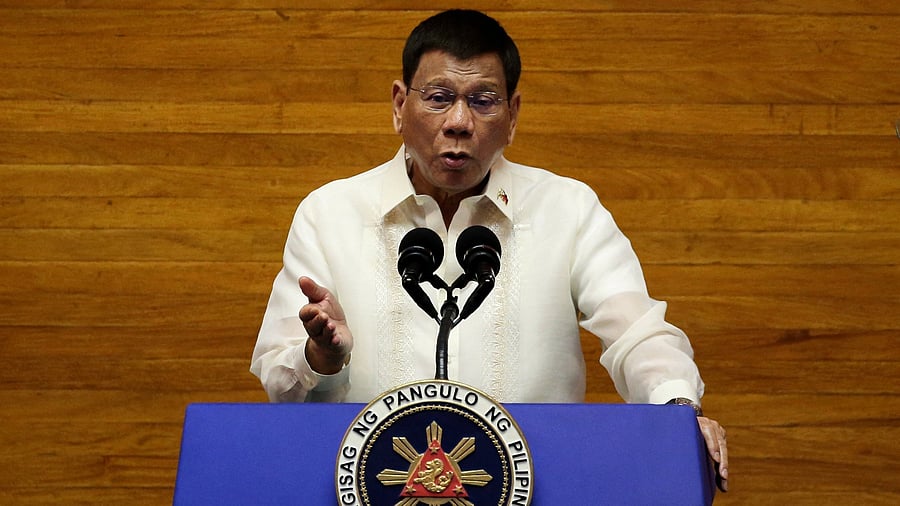
Philippine President Rodrigo Duterte
Credit: Reuters Photo
Rodrigo Duterte, the former president of the Philippines, was arrested Tuesday in Manila, after the International Criminal Court issued a warrant accusing him of crimes against humanity in his war on drugs in which, human rights groups say, tens of thousands of Filipinos were summarily executed.
He was taken into custody at the airport in Manila after returning from a trip to Hong Kong, according to the Philippine government. Duterte’s lawyer, Salvador Panelo, said the arrest was unlawful, partly because the Philippines withdrew from the court while Duterte was in office.
Duterte, 79, who left office in 2022, is a populist firebrand who remains one of the Philippines’ most influential politicians, and he has enjoyed relative immunity despite several accusations against him in connection with his antidrug campaign.
But Duterte’s arrest could be a major step toward accountability for thousands of Filipinos who have long sought justice for their loved ones, many of whom were gunned down by police officers, hit men and vigilantes. Activists say the vast majority of victims were poor, urban Filipinos, some of whom were minors and people who had nothing to do with the drug trade.
Only a handful of people have been convicted in connection with the killings, which rights groups say totaled roughly 30,000.
It was unclear whether Duterte would be forced to surrender to the ICC, which is based in The Hague. The case will be a high-profile test of the court, which in recent months has sought the arrest of Israel’s prime minister, Benjamin Netanyahu, and the head of the military junta in Myanmar, Min Aung Hlaing, accusing both men of crimes against humanity.
Minutes before he was arrested, Duterte was characteristically defiant.
“You would have to kill me first, if you are going to ally with white foreigners,” Duterte said as he was getting off the plane from Hong Kong, according to a video posted by GMA News, a Philippine broadcaster.
For years, Duterte seemed untouchable. As mayor of Davao, the second-largest city in the Philippines, for more than two decades, he ran a deadly antidrug crackdown with impunity. In 2016, he parlayed his law-and-order credentials into a victory in the presidential election, even though experts said the country did not have an outsized problem with drugs.